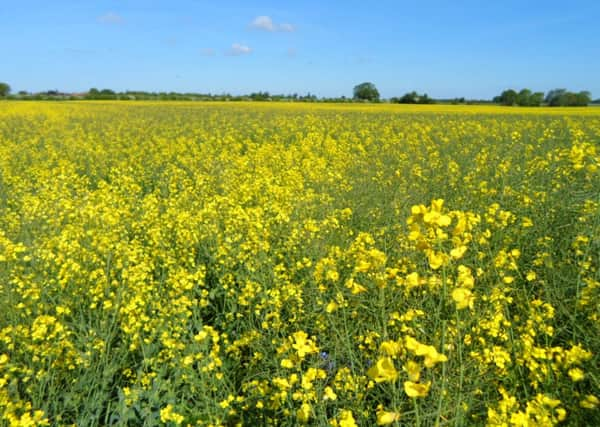Multi-million pound backing for breakthrough research


Experts at the University’s Centre for Novel Agricultural Products (CNAP) are among six groups to attract investment from the Biotechnology and Biological Sciences Research Council (BBSRC).
Some of York’s share of the funding is being used to explore ways of combating herbicide-resistant black-grass, a problem which causes serious disruption to cereal and oilseed rape rotations. Control is becoming difficult because black-grass can acquire an overarching mechanism that makes it resistant to all weed killers. It is estimated that some 1.2m hectares of UK land is already infested.
Advertisement
Hide AdAdvertisement
Hide AdAnother research group is studying potentially valuable co-products that might be extracted from oilseed rape. As well as the primary oil product, a protein-rich feed for animals can be made from the crop to improve its commercial viability.
The third strand of the research involves scientists investigating how marine invertebrates, including gribble and shipworms, digest wood, and aims to build on research into wood-boring gribble. These marine animals eat a lot of wood, and understanding their digestive systems is paving the way to develop better enzymes and processes for making biofuels out of non-food woody biomass such as waste paper and straw.
Professor Ian Graham, CNAP’s director, said: “These awards show just how strong our strategic research portfolio in CNAP is, the outputs of these projects can make a real difference to society and we are pleased that the BBSRC are committed to funding this important work.”
All three projects involve collaborations with partners from other UK institutions.
Advertisement
Hide AdAdvertisement
Hide AdProfessor Jackie Hunter, chief executive of BBSRC, said: “The vital knowledge generated by this research will help to address the threat of farmed-animal diseases, the health of an ageing population, and the need for more sustainable industries and energy sources.”